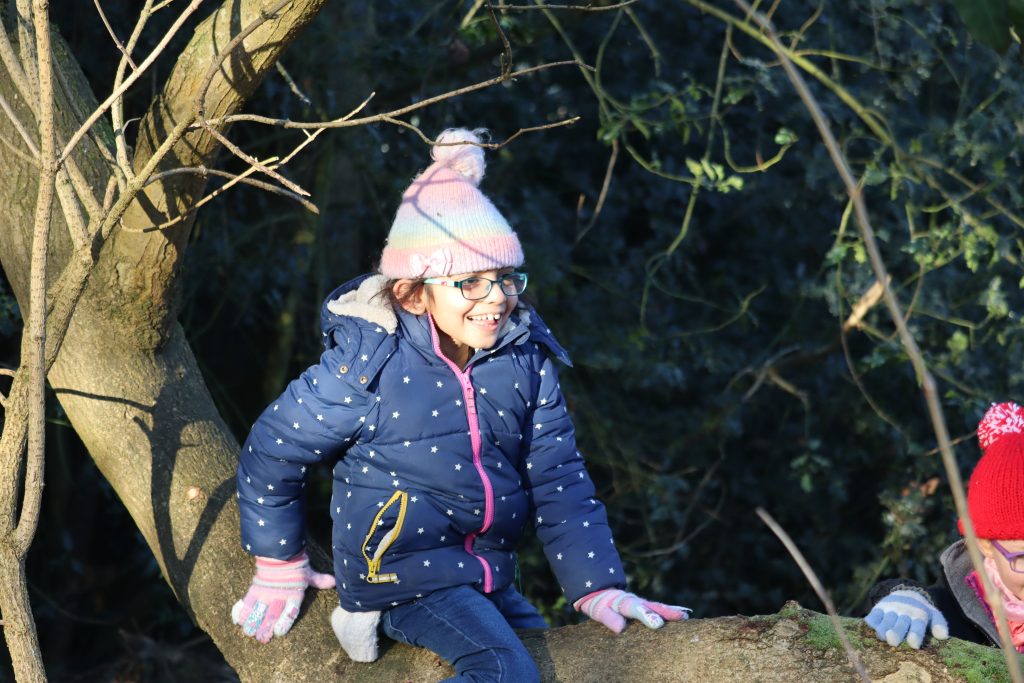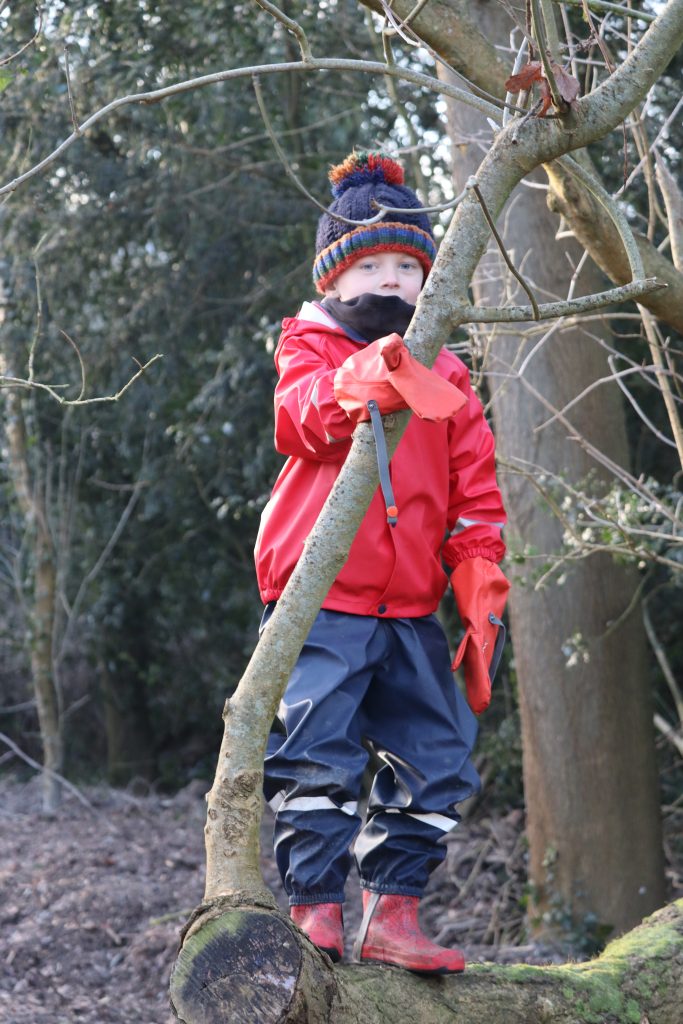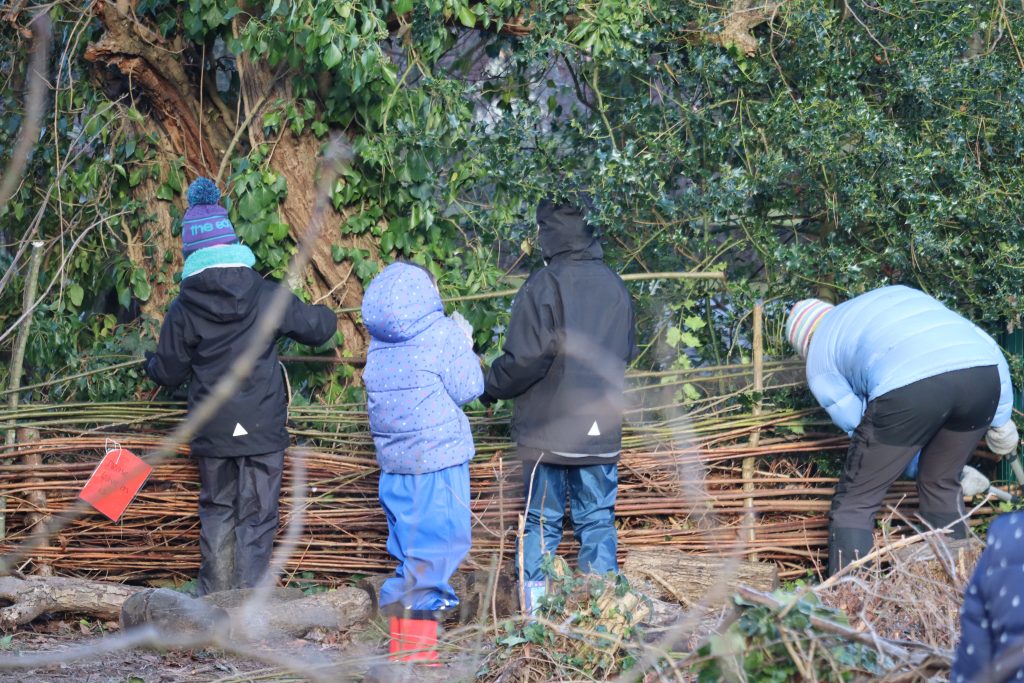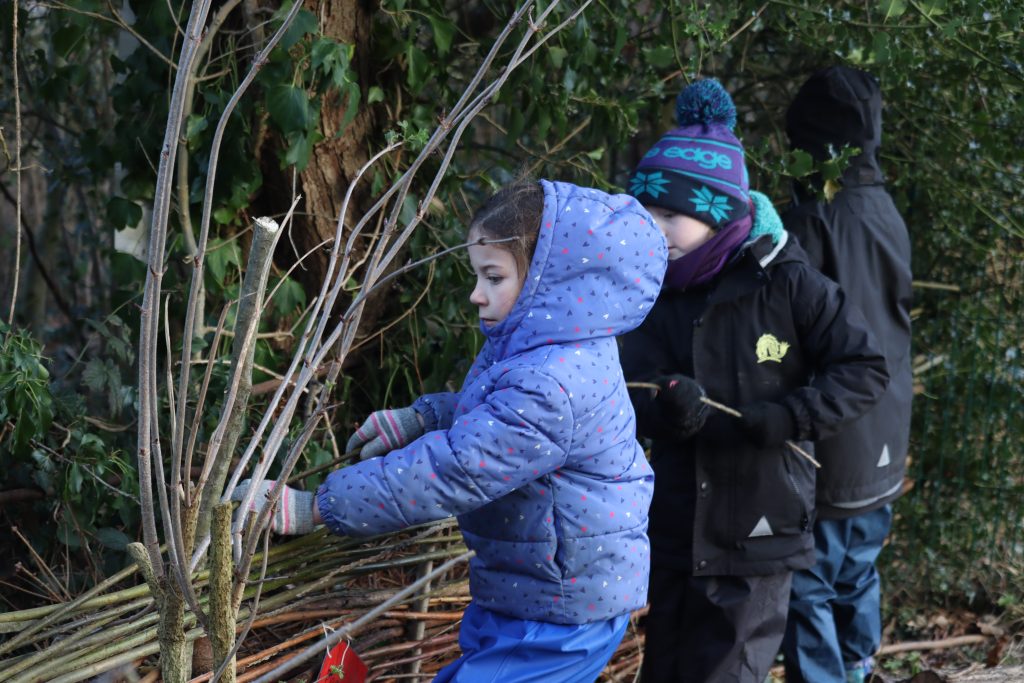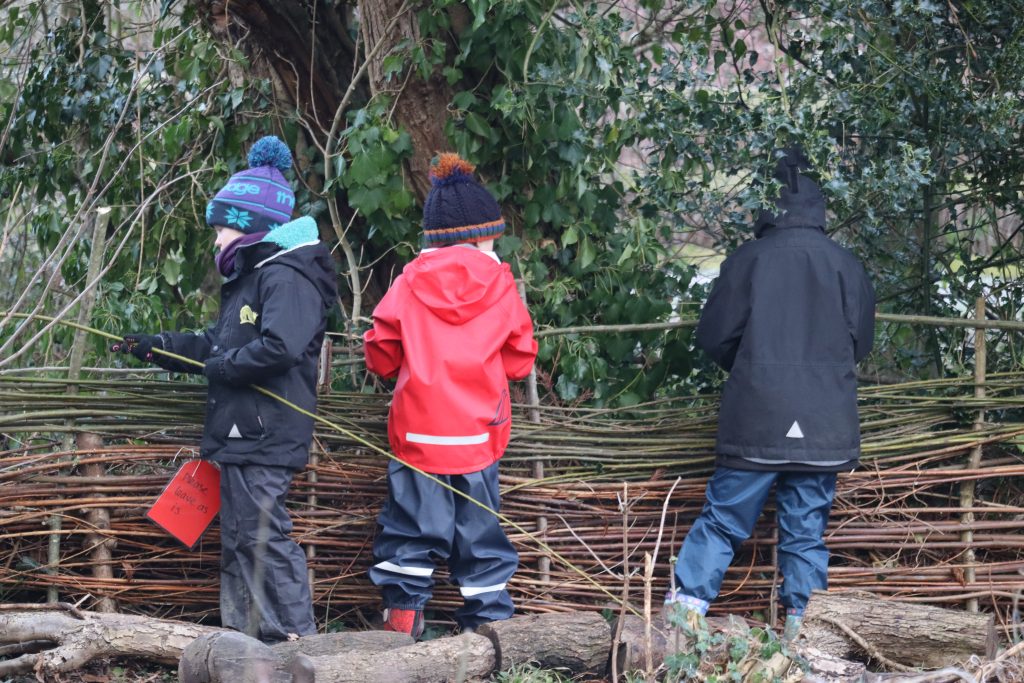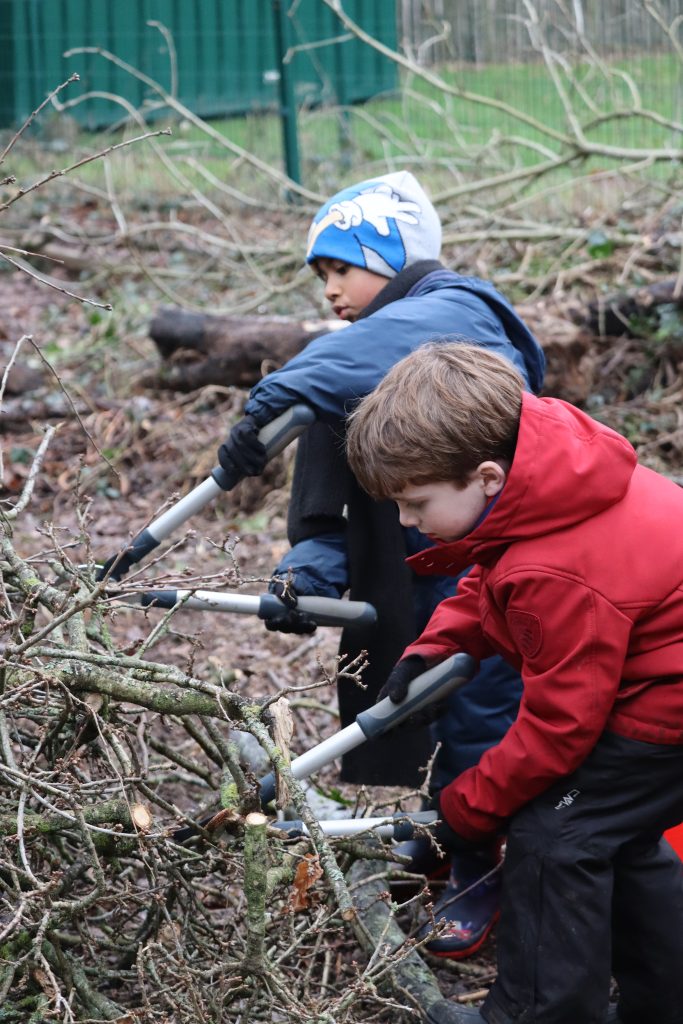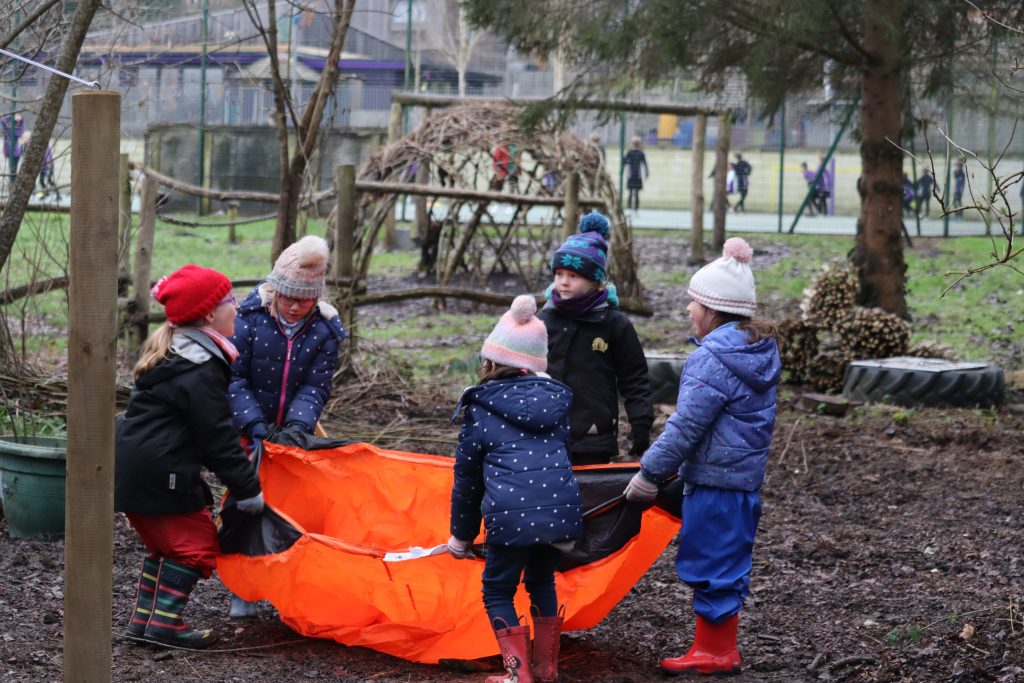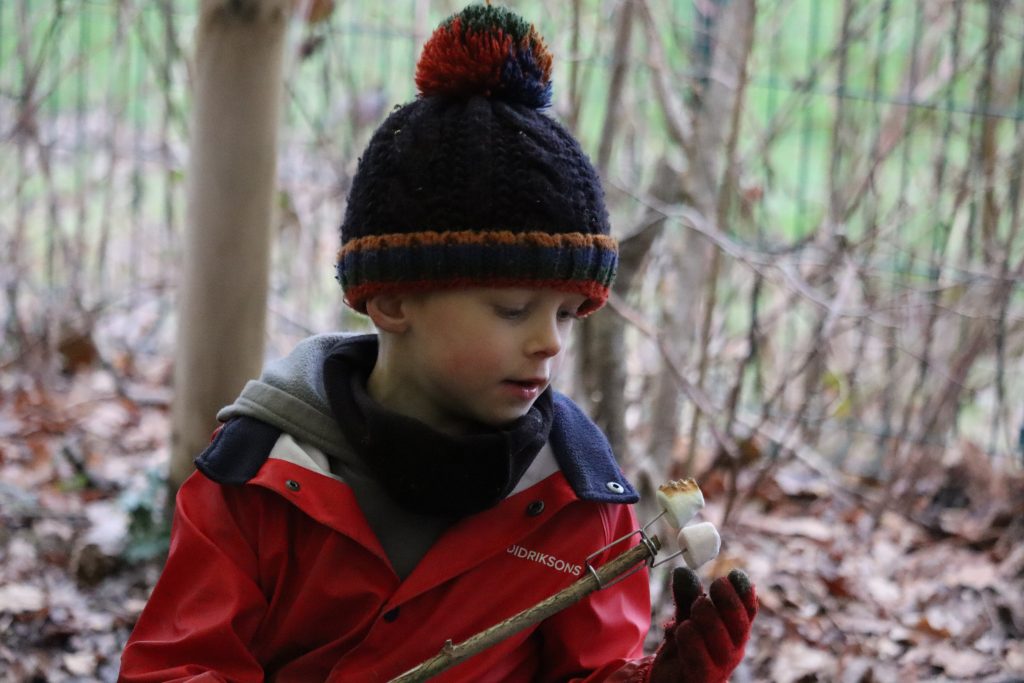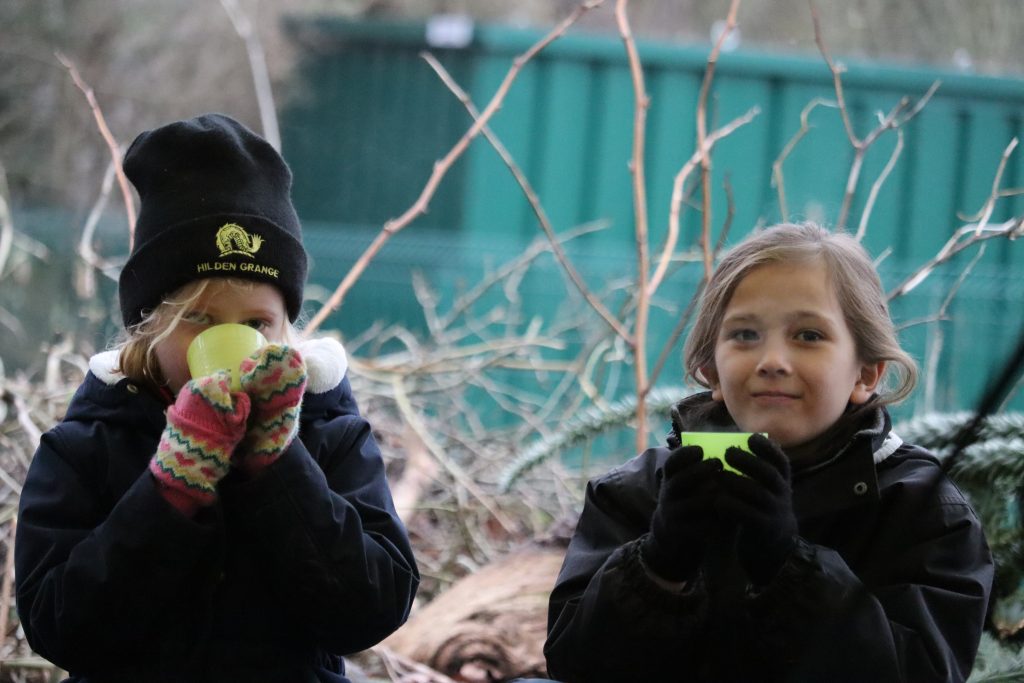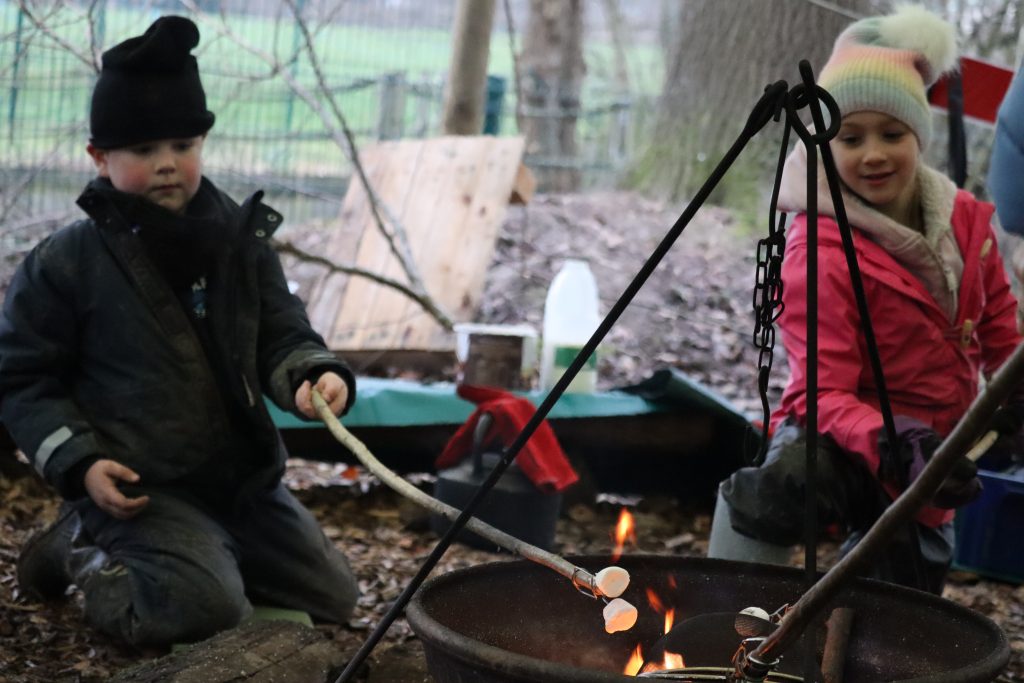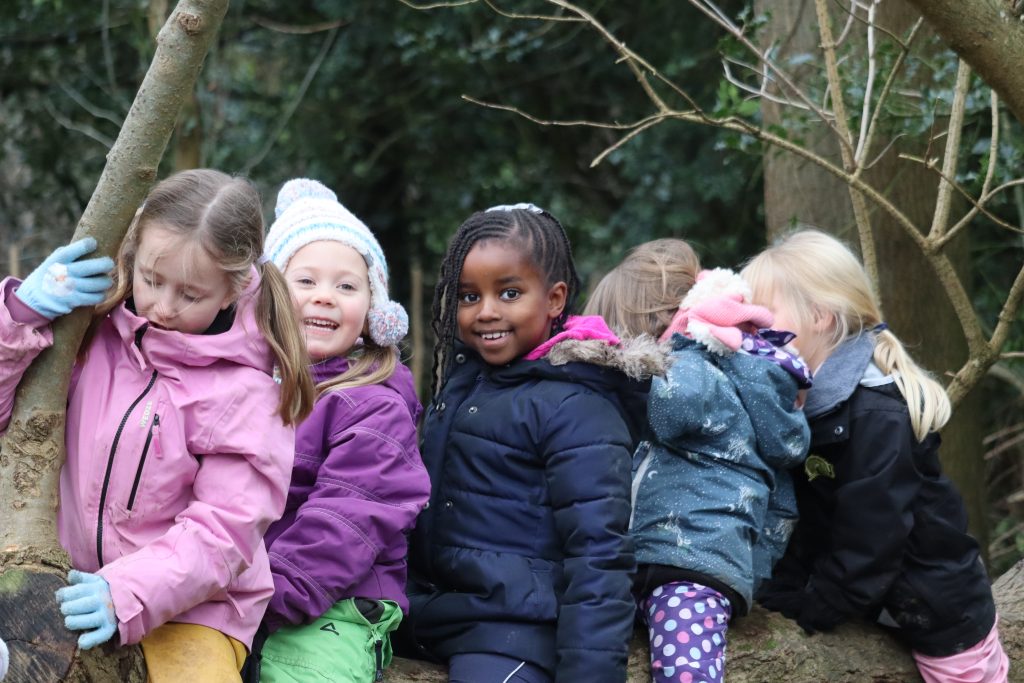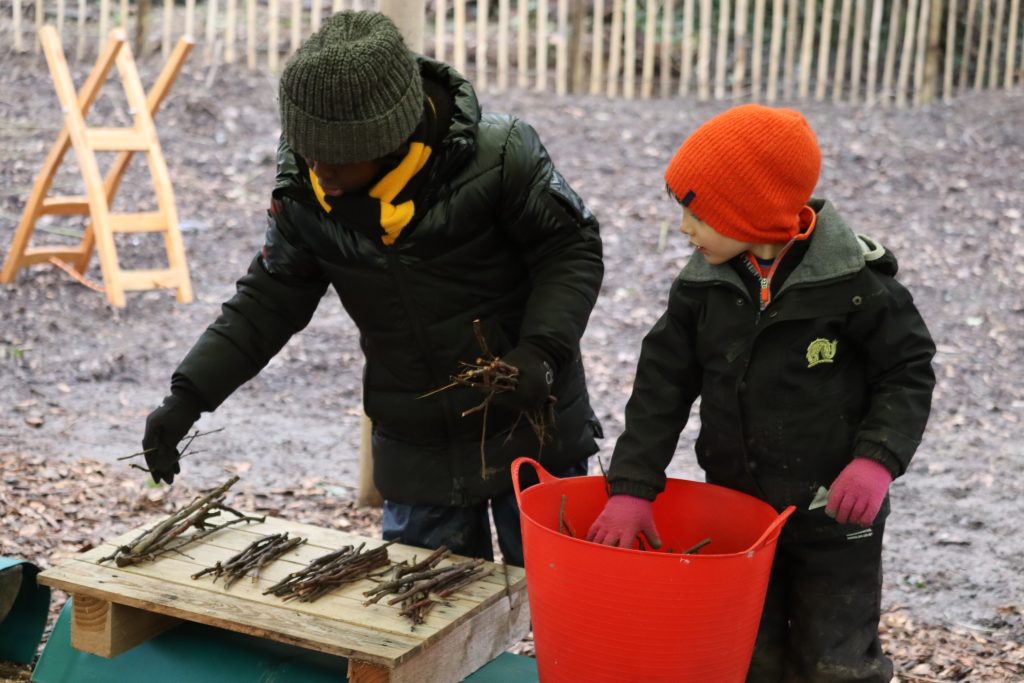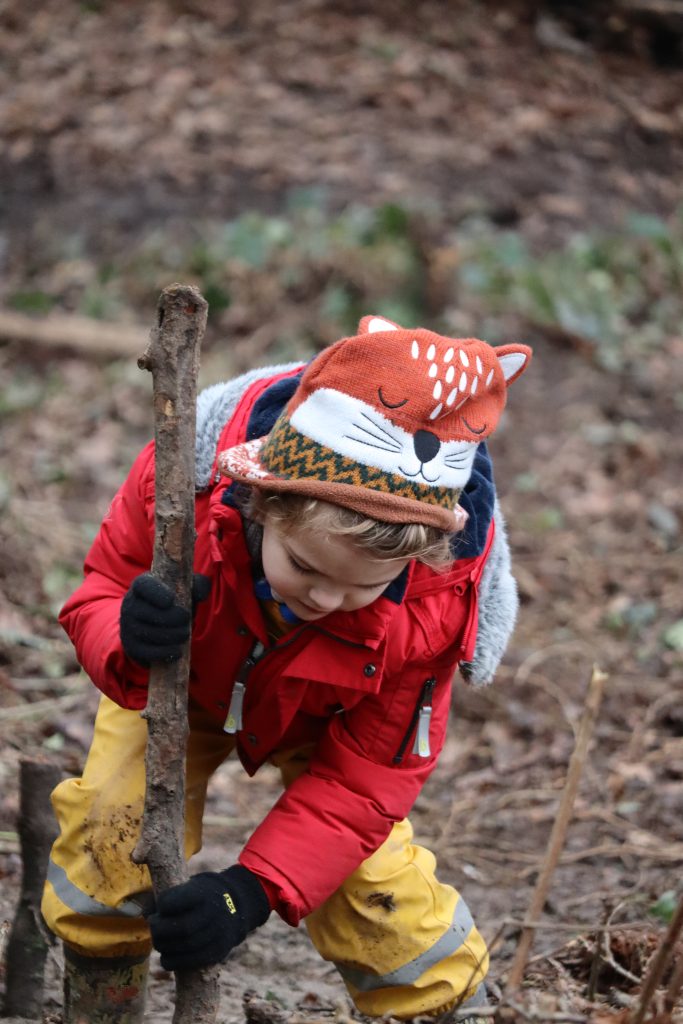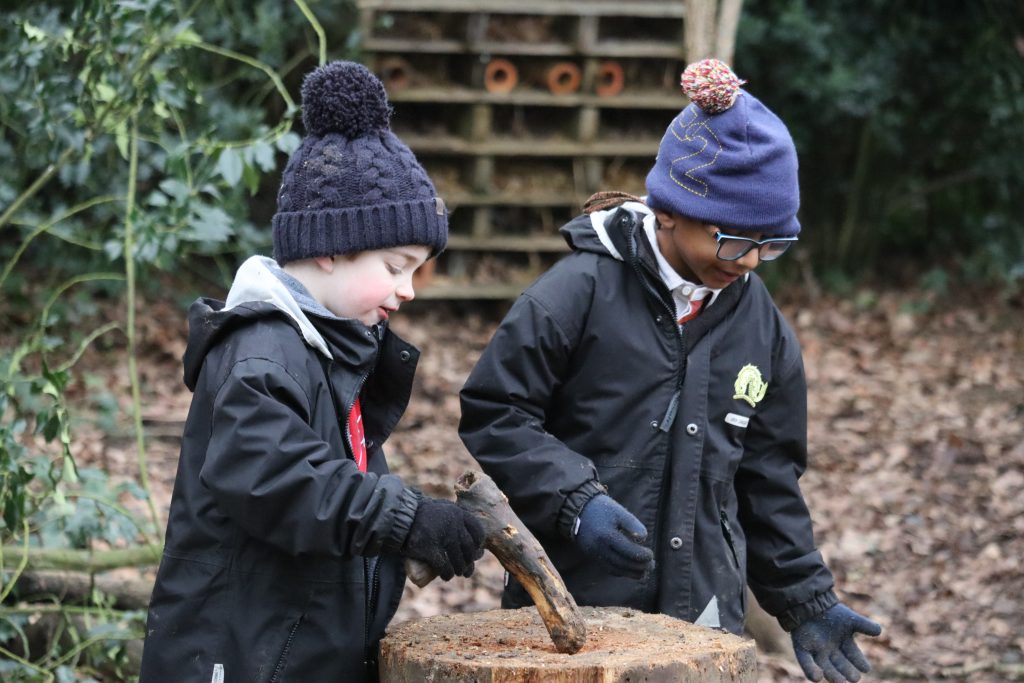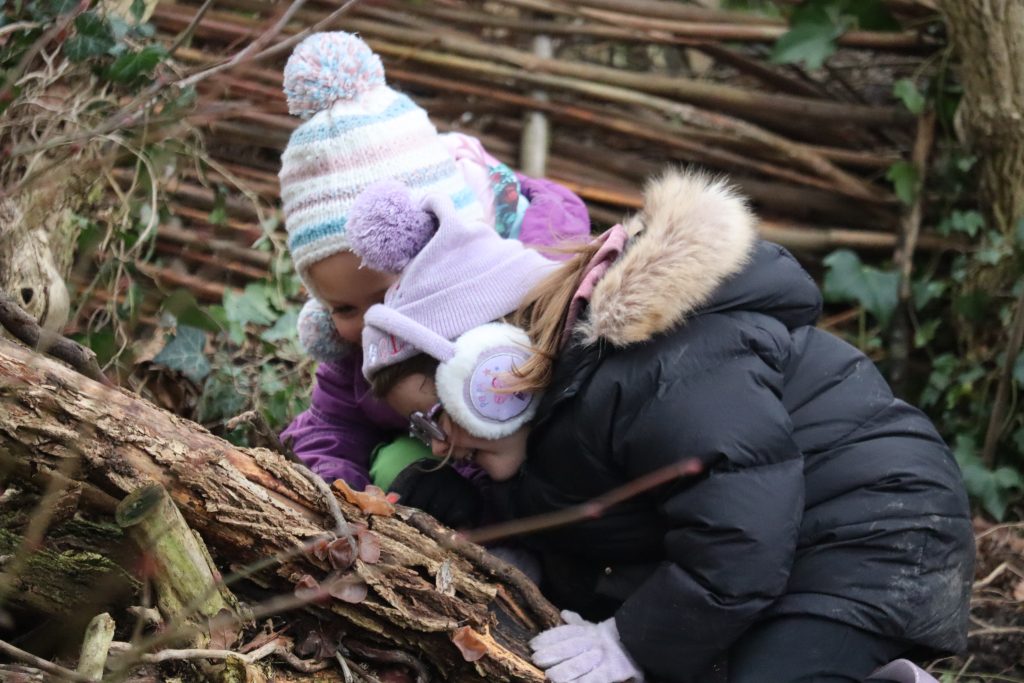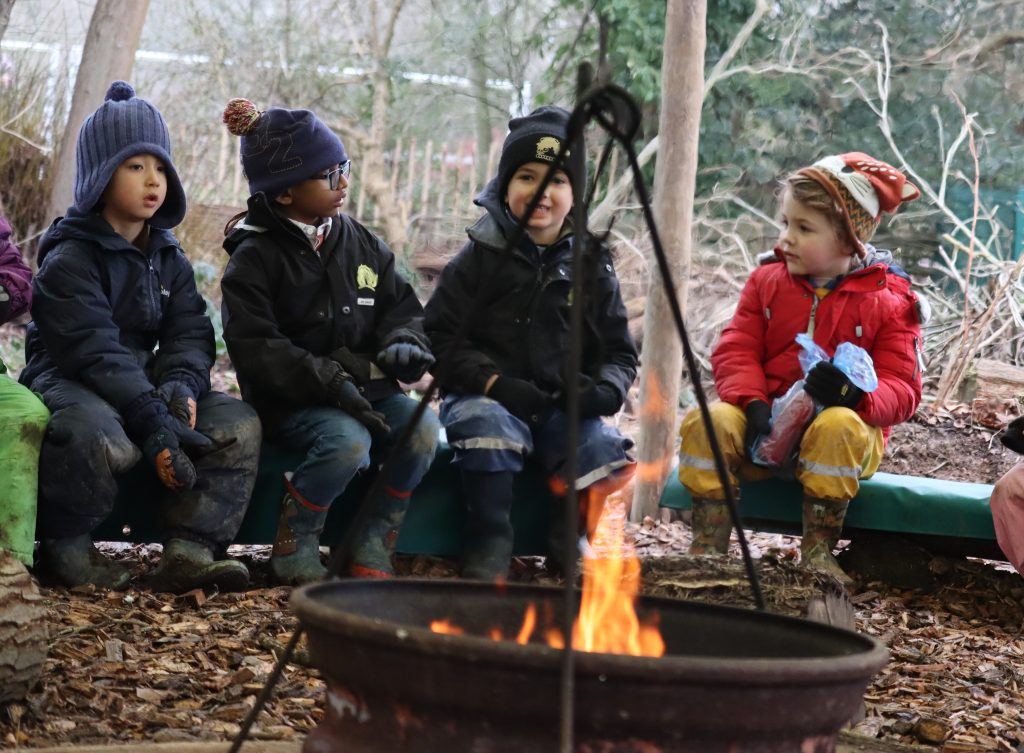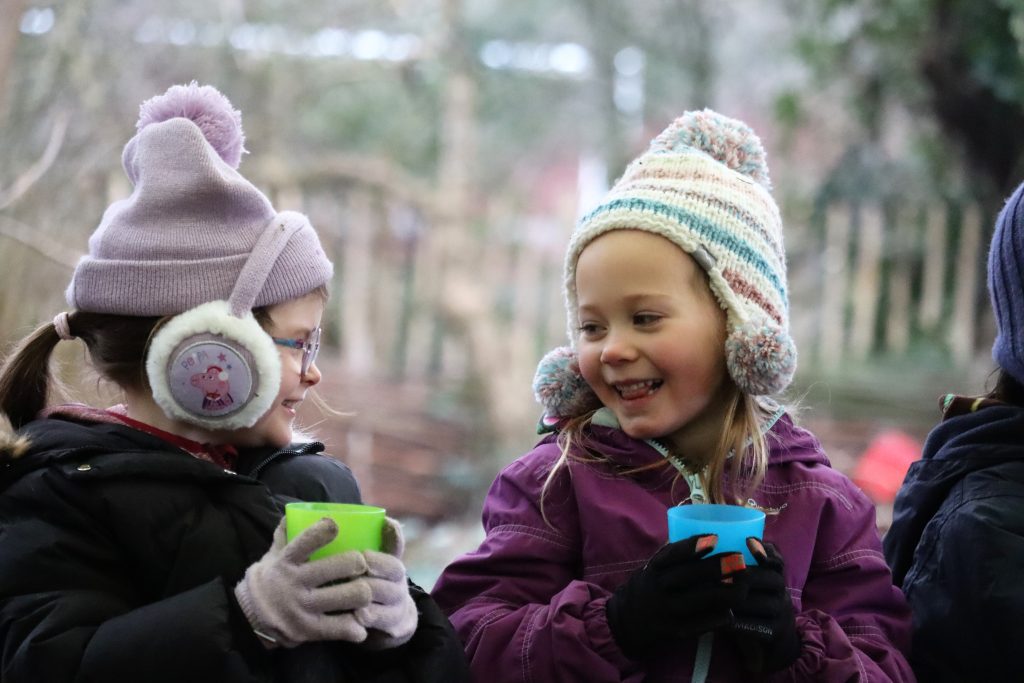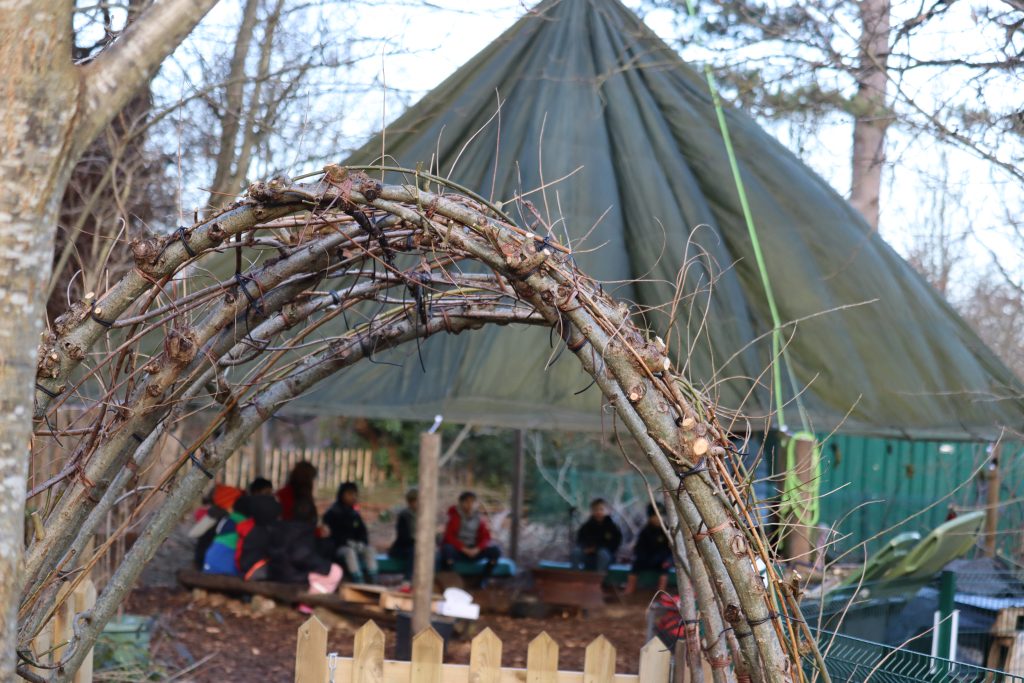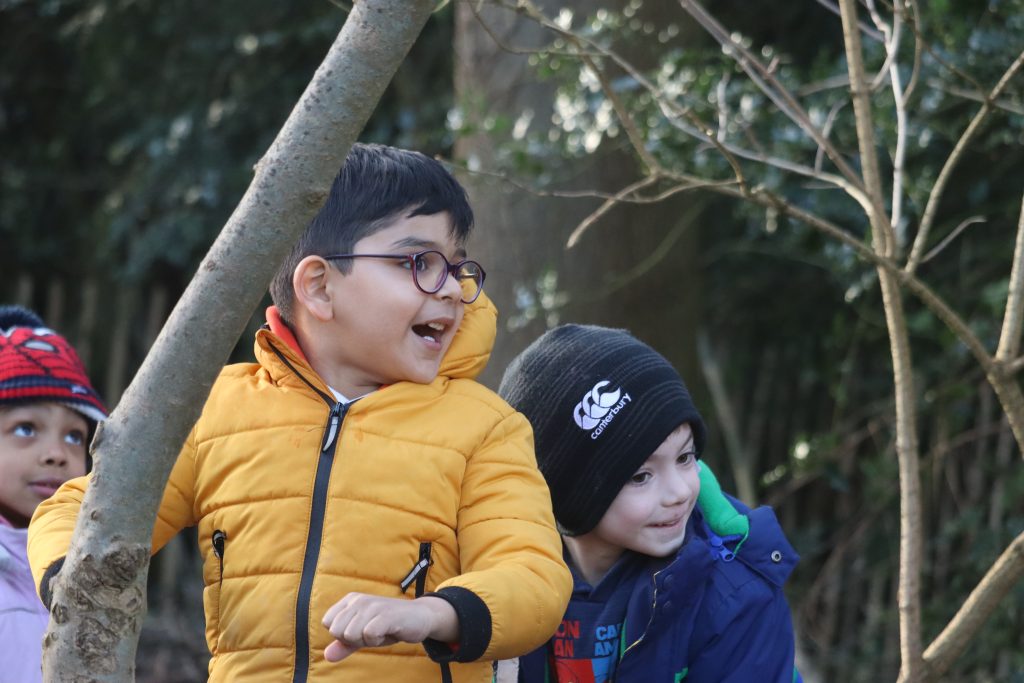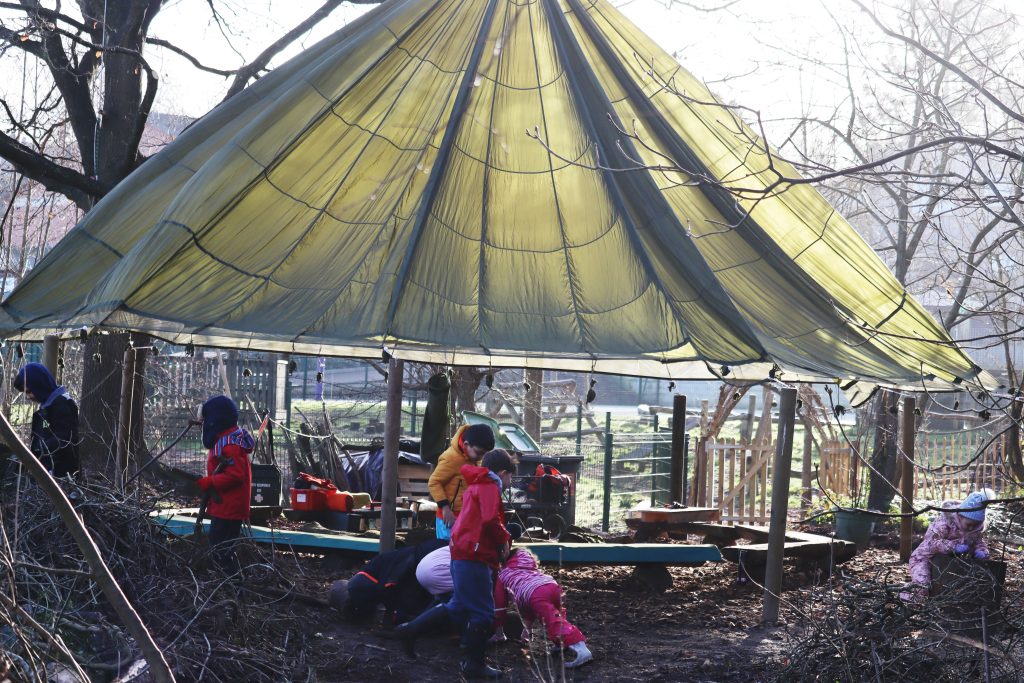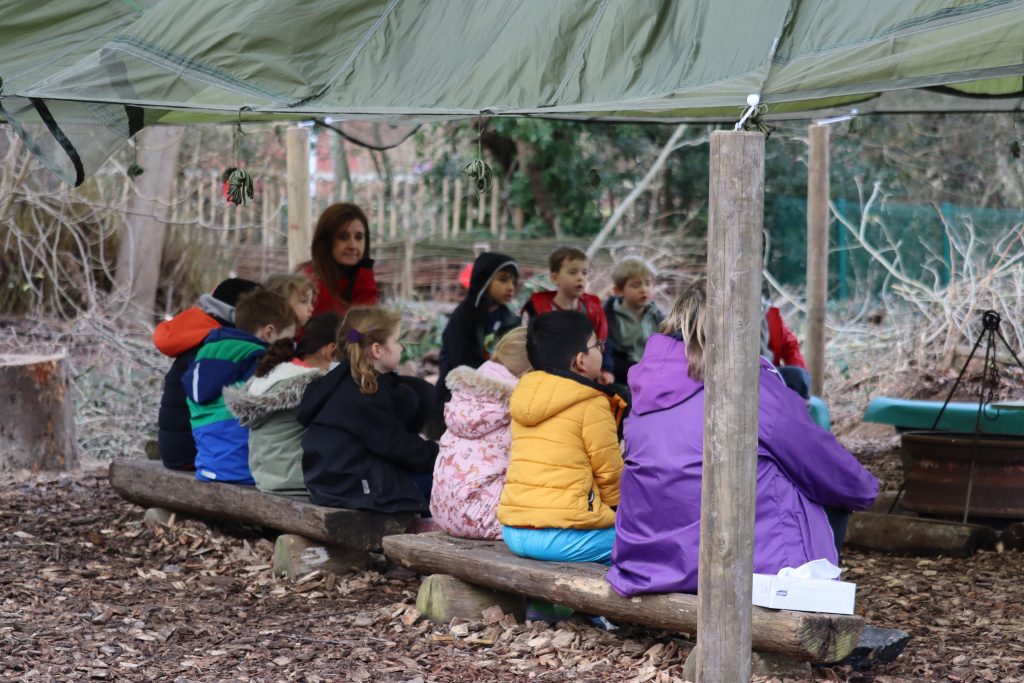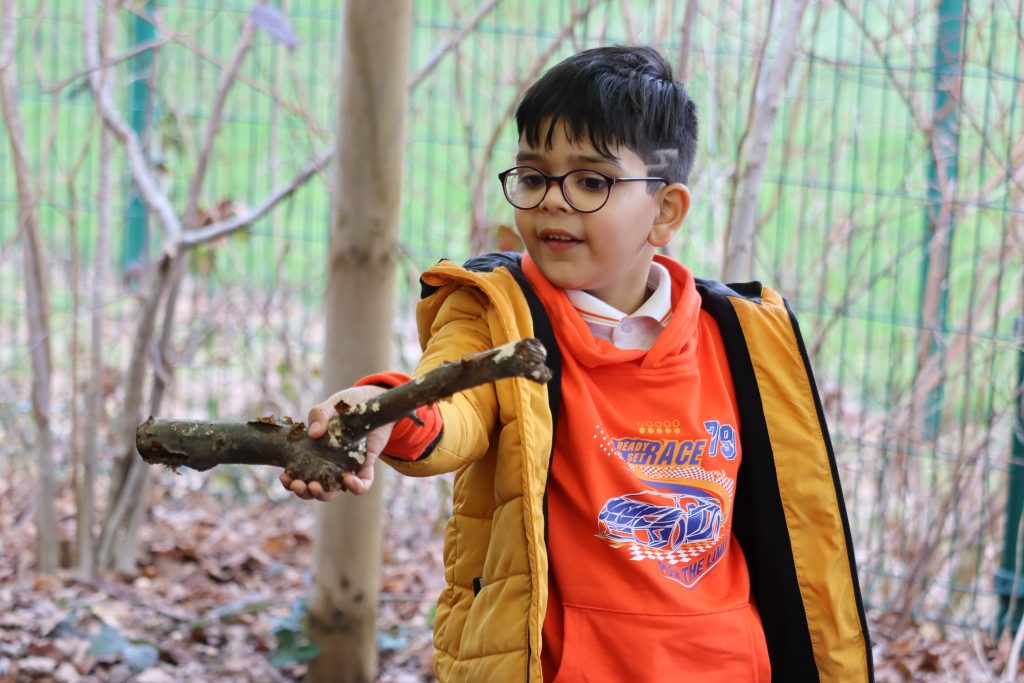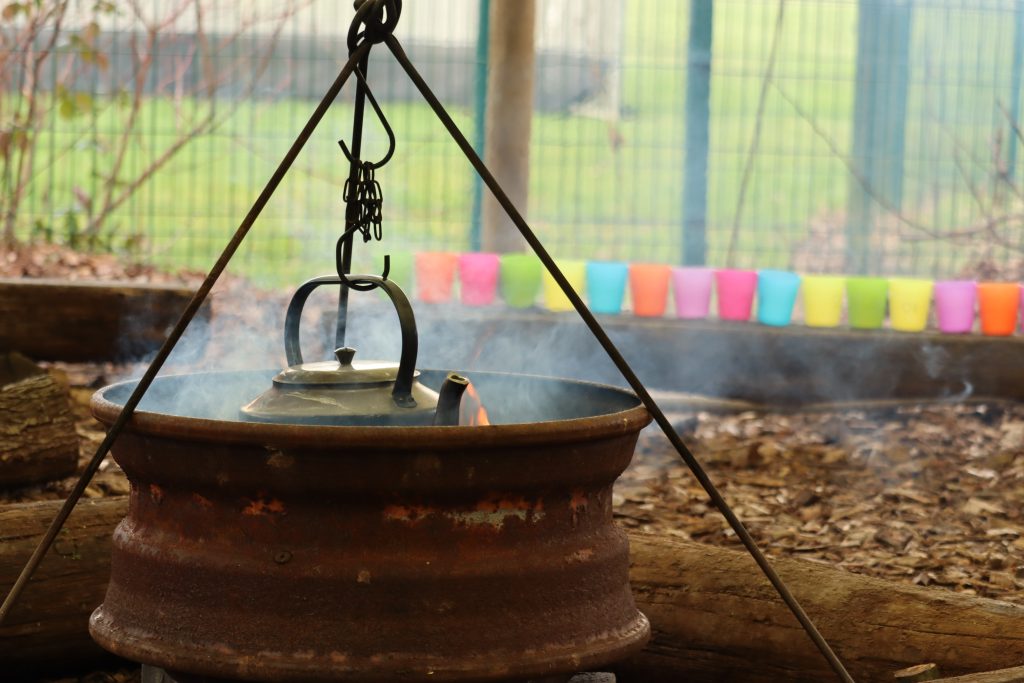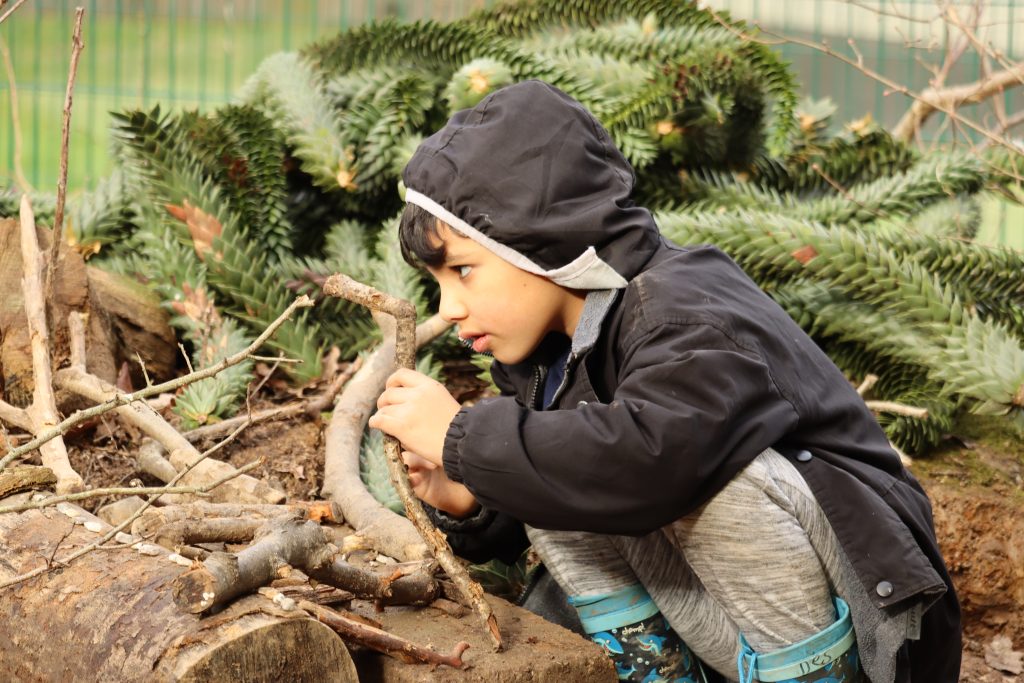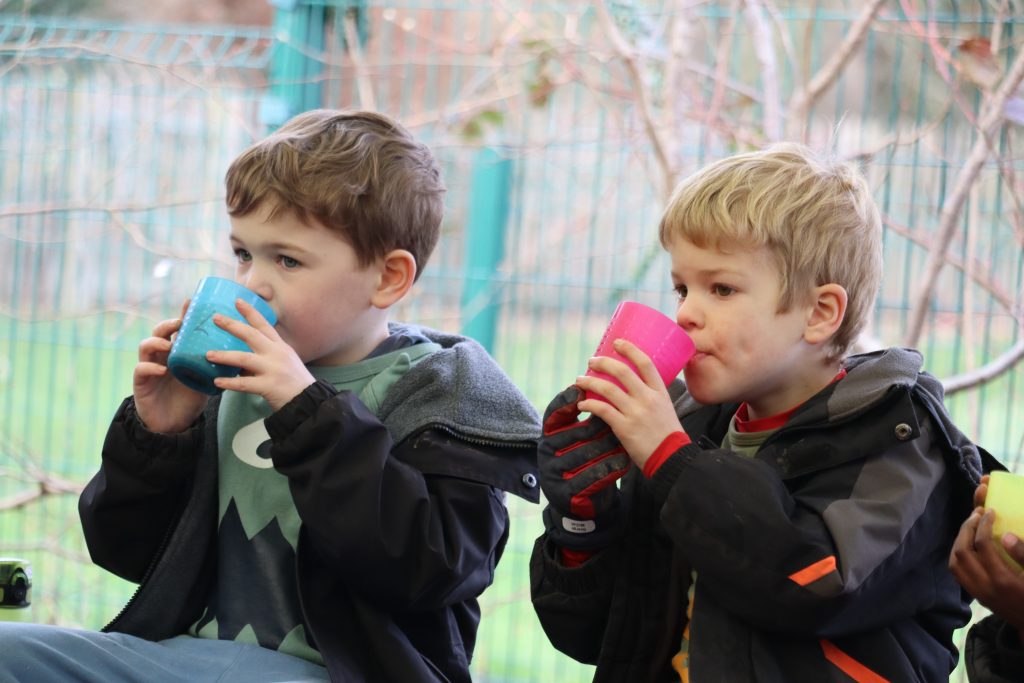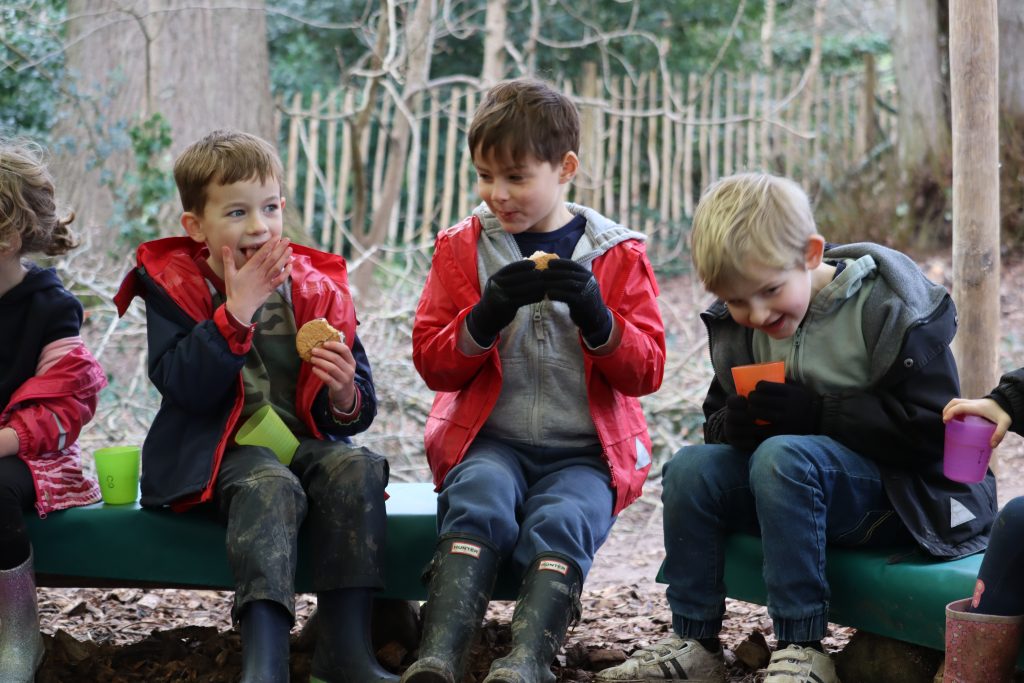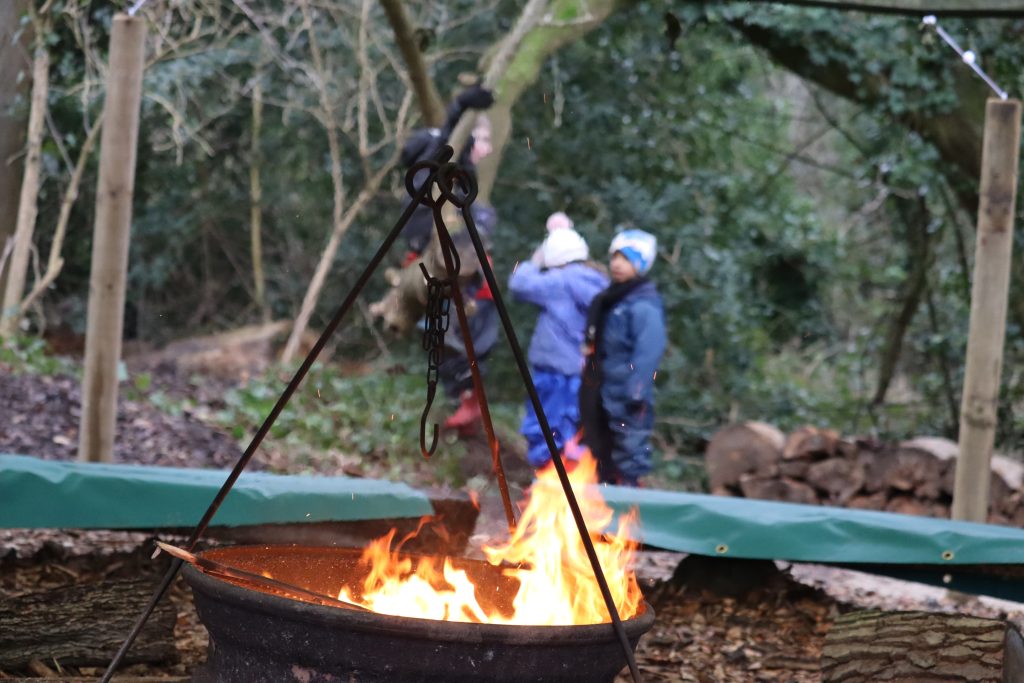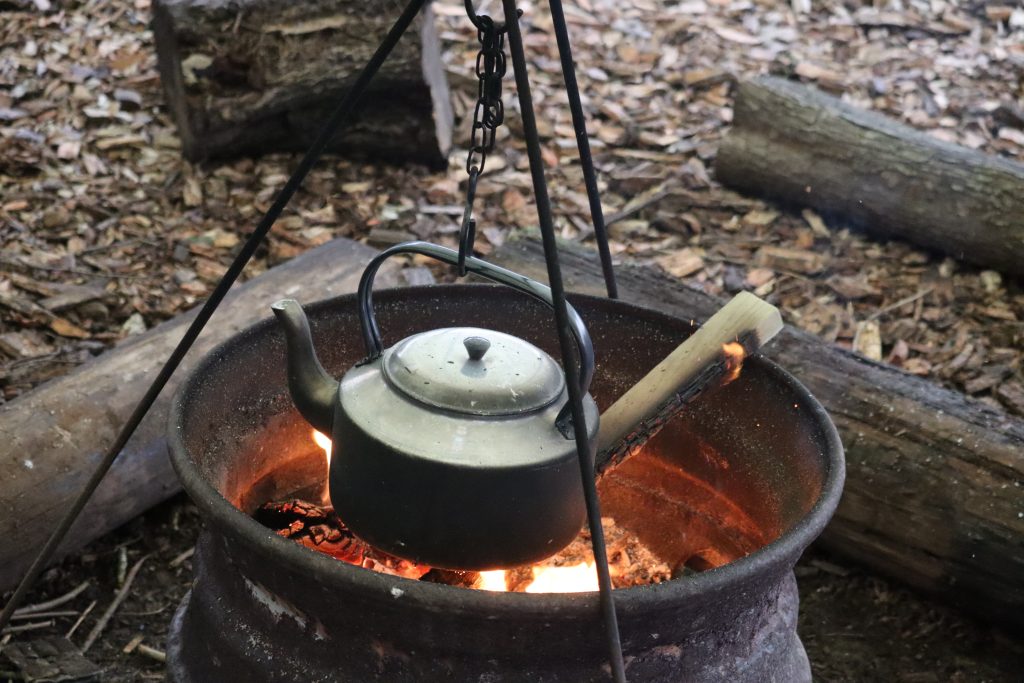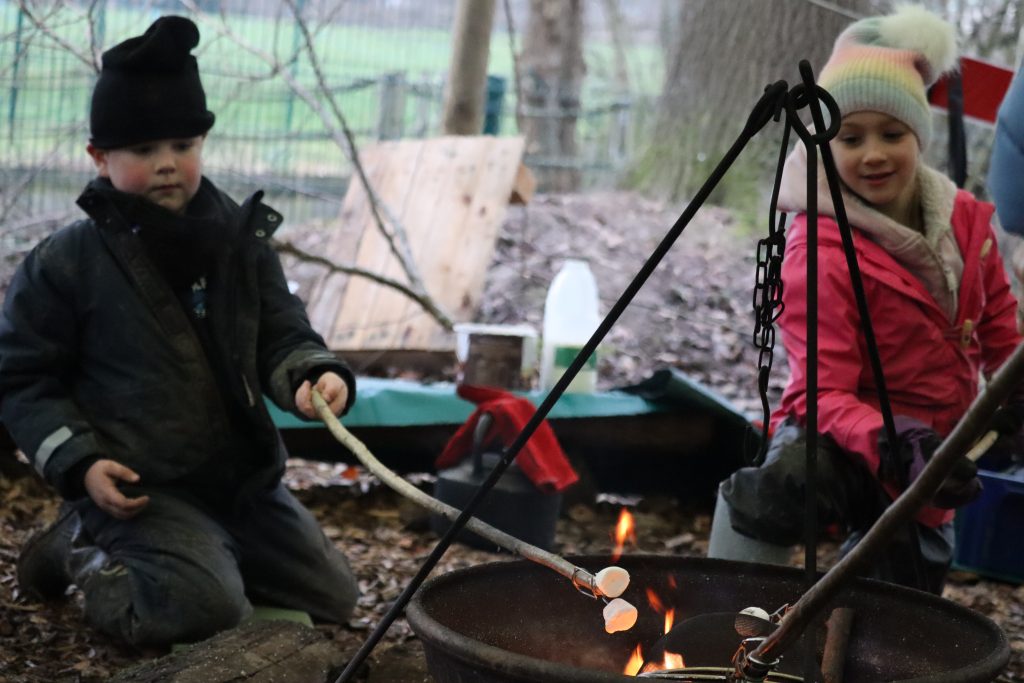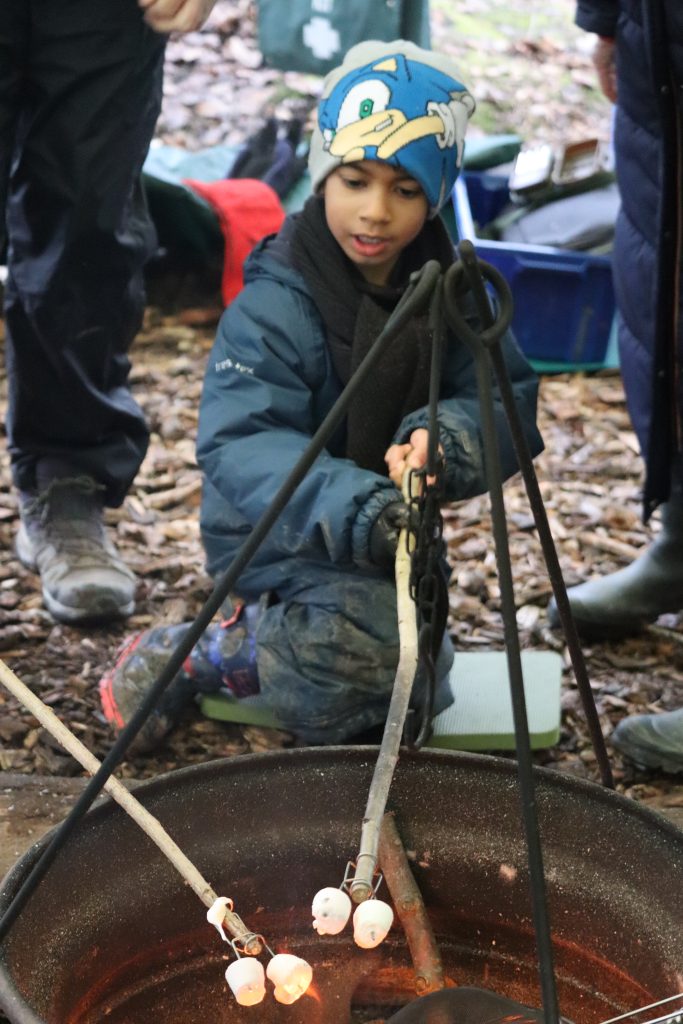“Forest School is an inspirational process, that offers ALL learners regular opportunities to achieve and develop confidence and self-esteem through hands-on learning experiences in a woodland or natural environment with trees.” Marina Robb, Managing Directory of The Outside Teacher
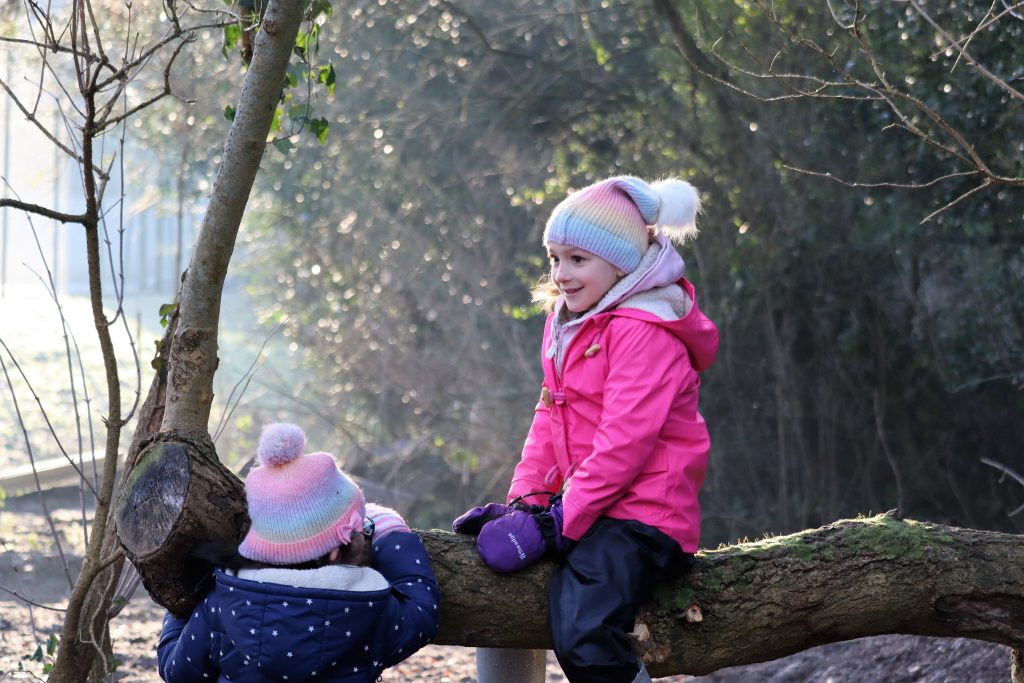
All children, from Nursery to Year 8, have one full Forest School Day each half term, led by a qualified Forest School practioner. It is an opportunity for the children to engage with nature, to take risks, to learn about the world around them and to develop skills. Most importantly, it is fun!
View a 360 degree view of the site
Forest School sessions are a mixture of adult and child-led activities. Adult-led activities are planned to develop skills and include fire lighting, den building, tool use and cooking. Child-led activities may be supported by adults but are driven by a child’s interests at that time. This makes the experience more meaningful to the individual, whether it is weaving, bug hunts, mud play or ‘just’ moving logs.
One of the remarkable things about Forest School is the use of proper tools. It gives our children great confidence, and their self-esteem rises when they can use tools, ‘just like mummy or daddy!’
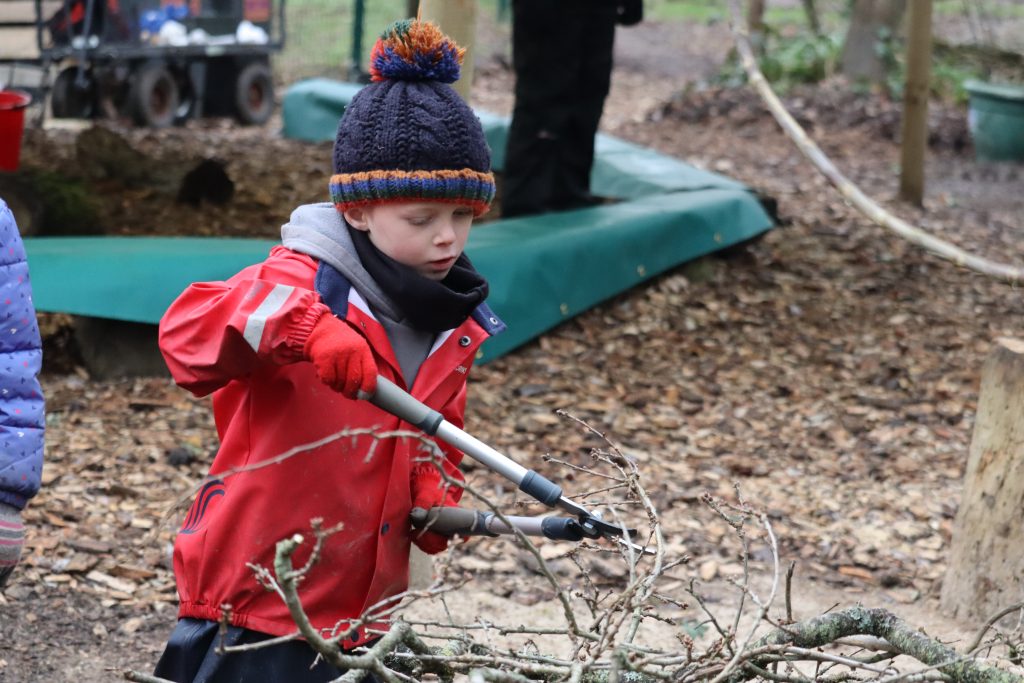
Our 3 Rules
Look after yourself
Look after each other
Look after nature
The Benefits of a Forest School Education
- Communication: language development is prompted by the children’s sensory experiences
- Well-being & Mental Heath: nature and being outdoors, can have a positive impact and benefits on children’s mental health
- Risk: children who are allowed to take risks in a risk-assessed environment will naturally take risks later in their lives. By taking risks children overcome challenges and are much more likely to be successful later in life
- Independence: given time and space children develop and demonstrate confidence in their own ability
- Motivation: children develop a keenness to participate and the ability to concentrate over longer periods of time, therefore, developing perseverance
- Knowledge and understanding: children develop an interest in the natural surroundings, fostering respect and responsibility for themselves and the environment.
- Social skills: children gained increased awareness of the consequences of their actions on peers through team activities such as sharing tools and participating in play
- Physical skills: these improvements were characterised by the development of physical stamina and gross and fine motor skills
